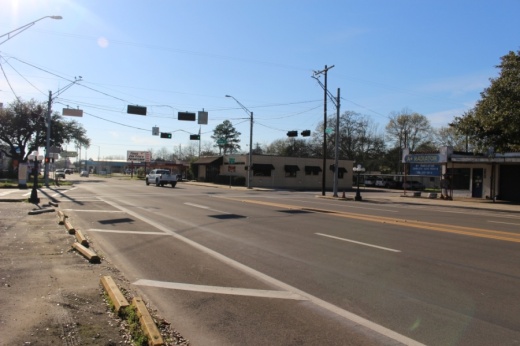Local businesses in Tomball and Magnolia have faced unprecedented challenges since mid-March after county and state restrictions were put in place limiting gathering sizes, the operation of nonessential businesses and dine-in services, community leaders said.
Sandy Barton, the president of the Greater Magnolia Parkway Chamber of Commerce, said concerns from local business owners have varied.
“The biggest issue is that we’ve got a lot of business [owners] that are afraid they are going to have to close their doors permanently,” she said.
Due to the coronavirus outbreak, restaurants have been forced to close their dining rooms and only operate through takeout or delivery, in accordance with declarations passed by local and state officials.
Nonessential businesses on the other hand—such as salons, gyms and some retailers—have been forced to close completely, leaving those who cannot work remotely or from home with no source of income, county officials said.
However, Barton said small businesses are able to apply for government loans, such as the Paycheck Protection Program or the Economic Injury Disaster Loan.
While the PPP is set up by the federal government, the loans are disbursed through local banks.
A PPP loan can fund up to two months of a company’s average monthly salary and is capped at $10 million, according to the Small Business Administration.
Barton said if the PPP is used to keep a business open and to pay employees, the loan will be forgiven by the government.
Likewise, the EIDL is also a federal loan but only provides up to $10,000 for small businesses experiencing a temporary loss of revenue, according to the SBA.
However, Barton said loans are not ideal for all businesses.
“[Local businesses] don’t feel comfortable carrying additional debt,” she said. “Businesses might not have been financially set before and don’t want to take on more debt.”
Barton also said in an April 7 phone interview that she believes only a small percentage of businesses have applied for loans thus far.
Chamber support
With more than 450 businesses listed on the Magnolia chamber website, Barton said small businesses are the job drivers in the local community.
“The concern is not only for employees, but also the business owners are also unemployed [if this situation persists],” Barton said.
In partnership with the Houston-Galveston Area Council, Harris County launched a $10 million Small Business Economic Assistance Loans Program on April 9. However, just four days later the organization had to pause the application process indefinitely due to an overwhelming number of applications, as previously reported by Community Impact Newspaper.
Similarly, while Barton said the PPP has been the loan of choice for business owners who are looking for loans that boast more funding for payroll, rent and utilities, businesses have also reported issues with receiving the loan through local banks, as some banks have reached their capacity and are unable to process more applications.
In Tomball, Bruce Hillegeist, president of the Greater Tomball Chamber of Commerce, said he is concerned about the funding capacity of the $2 trillion Coronavirus Aid, Relief and Economic Security Act, which was passed March 27 and included both the PPP and the EIDL.
“I’m fearing that money will run out [from the stimulus package],” he said. “I feel there will be another stimulus.”
Both the Tomball and Magnolia chambers have been hosting online conferences, which local businesses can tune into and have their questions answered about the current economic state and the options that are available to them.
Additionally, the Tomball chamber and the Tomball Economic Development Corp. created www.tomballtogether.com, a website for businesses to find resources and information they may need.
TEDC Executive Director Kelly Violette said local business owners are concerned because there is no clear idea for when daily activities might return to normal. She added the TEDC is promoting government assistance rather than its own grant programs, as TEDC grants require a 60-day approval process.
“We didn’t feel like it was efficient,” she said.
Citywide effects
In addition to small businesses, Violette said this crisis will likely affect entire cities as sales tax revenue is likely to be lower than originally projected.
However, she added with more people shopping at grocery stores, she is curious to see what sales tax numbers for March and April will be like.
In the meantime, Tomball City Manager Robert Hauck said the city is focused on staying prepared during this crisis.
“This is a marathon not a sprint,” he said. “Our businesses are resilient.”
Hauck said the city is monitoring sales tax numbers closely, but the most recent data had not yet been released as of press time.
“We are going to face some economic consequences because of [the pandemic],” he said. “We are already taking action to protect our financial situation ... by making reductions in areas of our budget immediately.”
Some of the reductions include eliminating discretionary spending, reviewing positions that become vacant, and taking a close look at capital improvement projects and deciding if projects need to be put on hold.
Magnolia City Administrator Don Doering said he has not yet seen a significant change in sales tax; however, he added data is usually two months behind.
“Things are working as good as they can now,” he said. “We are concerned but hopefully optimistic that things are going to loosen up and bounce back up.”
Rather than using national and big companies, Hauck said focusing on the local economy and shopping local is the best way to help local businesses.
“We want the Tomball [economic] engine to rev the loudest as we come through this,” he said.




